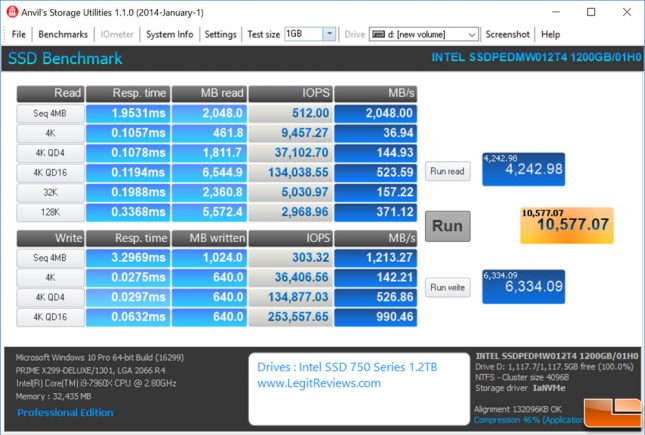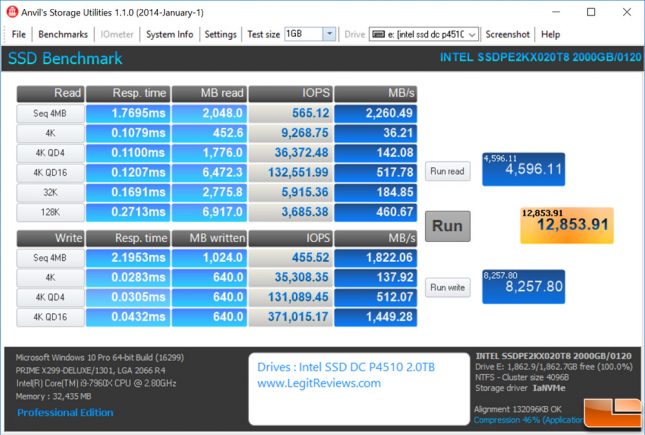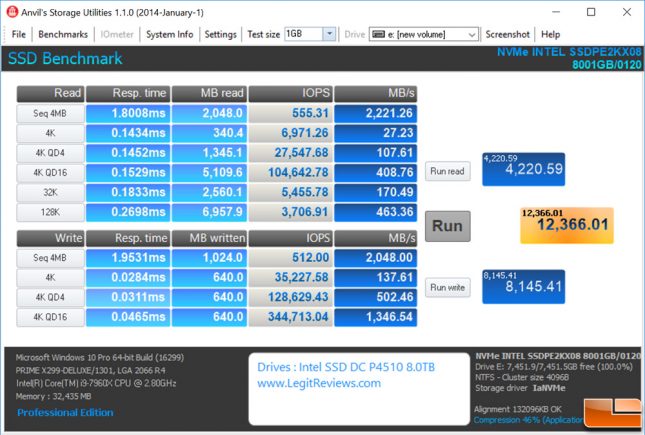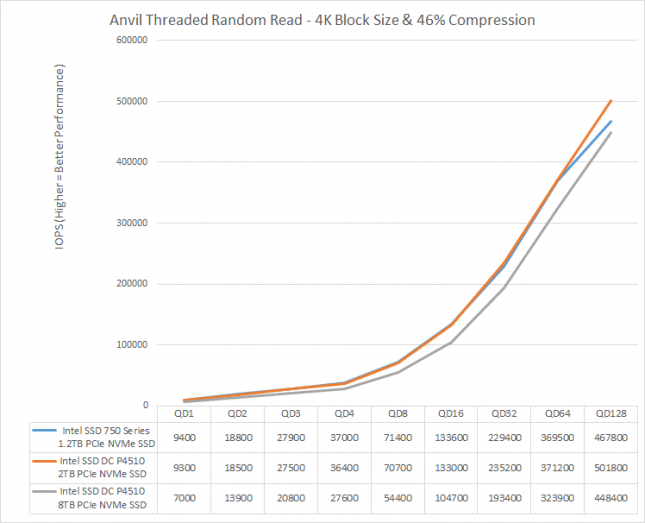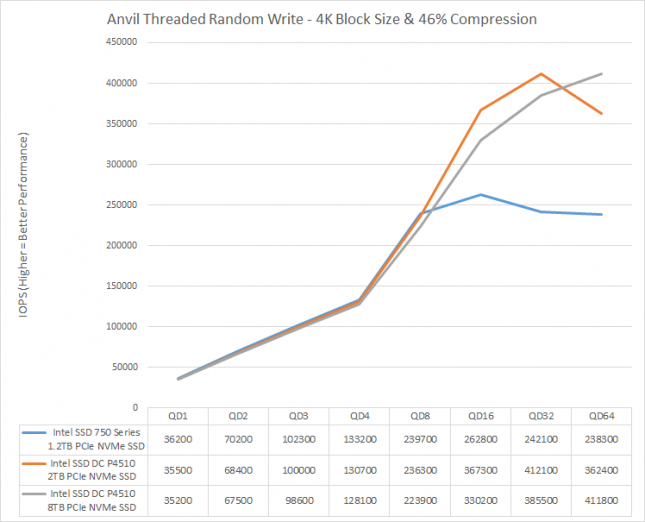Intel SSD DC P4510 NVMe PCIe Review
Anvil Storage Utilities & AIDA64
Anvil Storage Utilities 1.1.0
Along with the move to a new platform, we decided to make a change in one of the benchmarks. There’s a relatively new benchmark called Anvil Storage Utilities that is in beta but close to production. It’s a very powerful tool that measures performance through a variety of tests which can be customized. Since some of the tests more or less duplicate what we get from other benchmarks we use already, we decided to use the IOPS (Input/Output Operations Per Second) testing on 4kb file sizes at a queue depth of 1, 4, 8, 16, 32, 64 and 128. IOPS performance is something SSD makers tout quite a bit but we generally don’t do a lot of IOPS testing because frankly a lot of users can’t relate to IOPS metrics as well and it tends to be more meaningful to the enterprise/server crowd. Still, it is another performance indicator with relevance and while some drives post good MB/s numbers, their IOPS scores aren’t always commensurate which this test will prove out.
Anvil SSD Applications Benchmark at 46% Compression:
Intel SSD 750 Series 1.2TB SSD –
Intel SSD DC P4510 Series 2.0TB SSD –
Intel SSD DC P4510 Series 8.0TB SSD –
Benchmark Results: With the compression at 46% to help mimic real world applications better we found Intel SSD DC P4510 2.0TB drive coming in with an overall score of 12,854 points and the larger 8.0TB model coming in just behind that with a score of 12,366 points.
Benchmark Results: The 4K Random Read performance on the Intel SSD 750 Series 1.2TB drive and the Intel SSD DC P4510 2TB drive were actually pretty close to one another. Our P4510 8TB drive had lower 4K random read performance across the board and topped out at just shy of 450,000 IOPS at QD128.
Benchmark Results: When it came to 4K Random Write performance, the Intel SSD DC P4510 2TB drive topped out at 412,000 IOPS at QD32 and the 8TB drive topped out at 412,000 at QD64.

